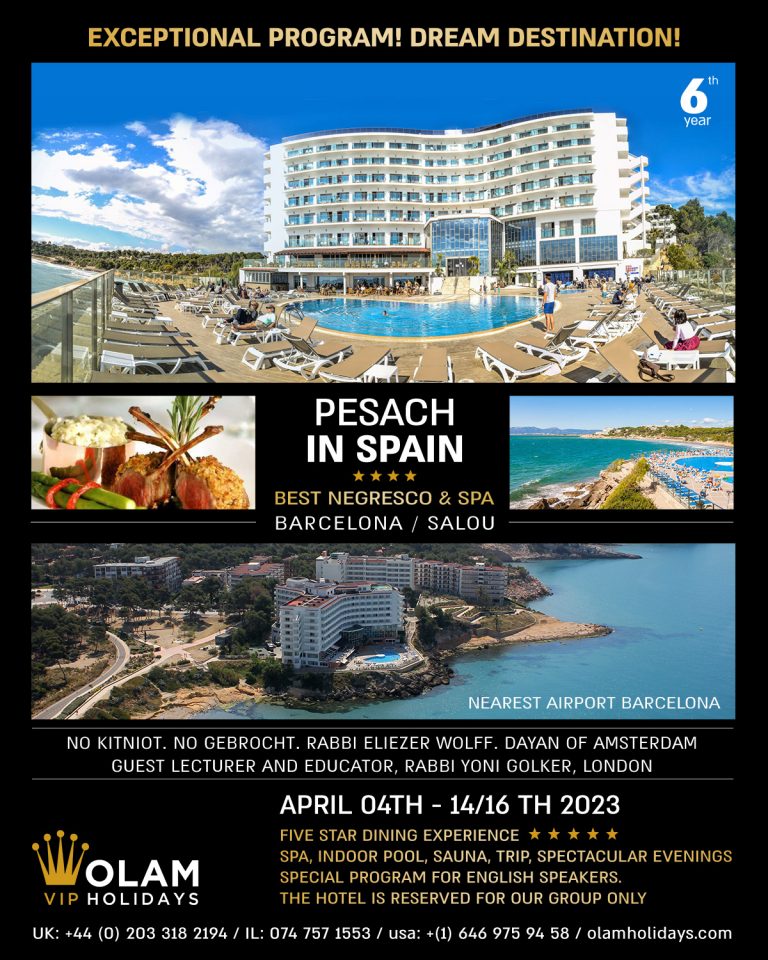The Passover holiday is a moment of contemplation, family gatherings, and, of course, culinary traditions. For many, the celebration brings a distinct happiness, but alongside the celebration, there can be difficulties in meeting various dietary needs. As families come together for Passover vacations, it becomes important to ensure that every attendee can enjoy celebratory dishes and traditional foods that meet their specific requirements.
Luckily, the landscape of Passover programs has changed significantly over the decades, with an increasing number of accessible choices available. passover vacations aim to accommodate a wide range of dietary restrictions, be it for health, moral, or personal reasons. From GF to veg and even plant-based selections, the focus is on creating an environment where all participants can take part warmly in the holiday spirit, enjoying both the company of loved ones and the delightful flavors of the holiday.

Grasping Dietary Restrictions
As the Passover holiday approaches, many families think about how dietary restrictions impact their holiday observances. It is important to acknowledge that dietary needs can vary widely, influenced by cultural traditions, health requirements, and personal choices. This awareness can considerably enhance the experience for guests at Passover programs by making sure that everyone feels included and respected.
Common dietary restrictions include gluten free, vegetarian, and vegan choices, as well as allergies to nuts, dairy, and eggs. Many participants in Passover vacations seek options that meet these needs while adhering to Jewish dietary laws. Catering to a variety of restrictions not only demonstrates a commitment to inclusivity but also improves the overall dining experience, allowing all participants to enjoy traditional foods in a way that suits their preferences.
Effective dialogue is essential in addressing dietary needs. Passover programs can benefit from creating clear ways for guests to express their dietary concerns before the event. This proactive approach guarantees that the organizers can adequately prepare meals, making adjustments where necessary. By fostering an atmosphere of understanding and flexibility, both hosts and guests can dive themselves in the spiritual and communal aspects of the holiday.
Inclusive Passover Program Features
When selecting a Passover program, inclusiveness is key to making sure that all attendees feel included and catered to. Programs that focus on nutritional needs should offer a variety of meal options, including gluten-free, veggie, and vegan choices, while still adhering to kosher rules. Recognizing the varied dietary needs among attendees allows programs to provide a more pleasant and comfortable environment for all.
Physical accessibility is another important feature that improves inclusiveness in Passover programs. Facilities should be mobility accessible, with accommodations for individuals with mobility issues. Additionally, having staff prepared to help guests with various needs ensures that all participants can enjoy the celebrations without obstacles. This emphasis on accessibility demonstrates a commitment to creating a welcoming atmosphere for people from all backgrounds.
Engaging activities that consider various age groups and preferences also add to an inclusive Passover celebration. Programs should provide a mix of activities, such as family-friendly games, informative workshops about the holiday, and artistic performances. By providing a blend of activity options, programs can appeal to a diverse audience, allowing everyone to participate and enjoy the celebration in their own way.
Selecting the Ideal Passover Getaway
Choosing the right Passover retreat involves taking into account your nutritional needs and preferences. Many programs offer a selection of meal options customized to specific dietary restrictions, such as gluten-free, vegan, or meat-free. Checking the meal plans in advance can help that your dietary requirements will be met during the celebration. Read feedback and testimonials from previous participants to gauge how well the package accommodates multiple diets.
Another key consideration is the location and setting of the Passover program. Some groups favor a tranquil retreat in nature, while others may enjoy the excitement of a city environment. Assess activities offered at the location, such as educational sessions about Passover traditions, leisure opportunities, or family-friendly entertainment. This can enhance your overall experience and make it richer for everyone involved.
Finally, consider the community aspect of the program. Some Passover retreats foster stronger connections through organized group activities, allowing participants to create lasting memories. Interacting with others who share similar dietary needs can also be reassuring and rewarding. As you determine on the best Passover vacation, prioritize a program that matches with your values and enhances your holiday experience.
